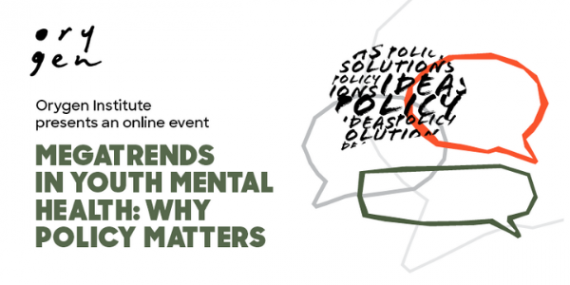CEO Update from Mental Health Australia: A Budget Analysis in an Election Campaign

A Budget Analysis in an Election Campaign
Mental Health Australia receives a steady and welcome stream of feedback each week about the material we provide via this newsletter, and none more positive each year than the Budget Analysis.
We are proud to again provide this for members and stakeholders.
2022-23 Federal Budget Analysis
In Mental Health Australia’s previous 2021-22 Budget Analysis we said that “setting a clear long-term direction (evidence-informed, guided by expert advice including from lived experience) is as important as the funding amounts and individual initiatives. The articulation of this longer-term vision for how mental health should work in, say, 2035 is perhaps the Budget’s most glaring omission. It is critical the sector has an opportunity to shape this vision, and support integrated implementation.”
In summary, while there are some valuable investments that will contribute to improving mental health service delivery in some areas, the 2022-23 Budget lacks the level of comprehensive strategic investment needed to deliver on the mental health reforms identified by the Productivity Commission and by the mental health sector itself.
To provide some further context around the level of investment required in mental health in Australia, nationally, Australia spends about $11 billion on mental health per year, with roughly 60% coming from state and territory governments, 35% from the Australian Government and 5% from private health insurance funds and other third party insurers.
Since 2014‑15 (and up until 2019-20 when figures were last reported) spending on mental health as a percentage of overall health remained relatively stable ranging between 7.4% and 7.8%, despite mental health and substance use disorders representing 12% of the total burden of disease in Australia.
So, not only is it clear that the 2022-23 Budget will not address the Productivity Commission’s recommendations, it does not provide a strategic national vision for mental health and furthermore it is also clear that it is not enough to shift mental health’s percentage share of the global health budget.
In fact, investment in mental health via the Australian Government appears to be developing a bad habit of sporadic large investments followed by years of underinvestment, which deteriorate the sector to the point where another large investment is required. At least, that is the picture painted by a decade or so of budget announcements.
Another lens through which to view this year’s budget is the proportion of measures which are providing funding for new initiatives and the proportion which appear to be continuing existing programs. Although information is not provided with the granular transparency that would enable this analysis, Mental Health Australia estimates that roughly between 17% and 55% of funding provided through the ‘prioritising mental health measure’ is for continuation of existing necessary services.
While there are some notable investments in mental health and suicide prevention, for the large part this is an election budget targeted at relieving immediate voter cost of living concerns. This Budget continues a disappointing tradition of investing small amounts to ensure critical services continue and it does not offer either the quantum of investment or the strategic visioning required to reform mental health in Australia towards the community-focussed system recommended by the Productivity Commission Inquiry into Mental Health.
Have a great weekend.

Dr Leanne Beagley
CEO, Mental Health Australia
Next week
My Diary next week
On Tuesday, we have round two of our Members’ Policy Hub on social participation; earlier in the day I will be meeting with the Board of member organisation On the Line.
On Wednesday I have a meeting with the ABC regarding their ‘Anxiety Project’.
On Thursday, I will be participating in the NDIS joint advocacy and co-design meeting; and meeting with the Independent Hospitals Pricing Authority stakeholder advisory committee.
On Friday, our Chair Matt Berriman and I will be meeting with the CEO and Chair of the National Mental Health Commission. Later, I have a meeting of the National Disability and Carer Alliance and a meeting of the Culturally and Linguistically Diverse Communities COVID-19 Health Advisory Group of the Department of Health.
Send us your news, events, and job vacancies
Communicate your news, job vacancies, or upcoming events to more than 5,000 people in the mental health ecosystem weekly.
Mental Health Australia members are invited to send us news, announcements, job vacancies, events or other notices for inclusion in the Weekly CEO Update newsletter. To do so, simply fill out this form by COB each Wednesday for your notice to appear in the newsletter the following Friday.
Featured members

Blue Knot Foundation is Australia’s National Centre of Excellence for Complex Trauma, empowering recovery and building resilience for the more than five million adult Australians (1 in 4) with a lived experience of complex trauma, including childhood trauma and abuse, their families and communities.

Allied Health Professions Australia is the recognised national voice for allied health professions which provide crucial support for people experiencing disability, chronic illness, mental ill health and a wide range of other health issues.
Mental Health News
Every Australian should have the right to have their say in the election
It’s been nearly a decade since the Australian Law Reform Commission recommended that the Federal Government take action to protect people with disability’s right to vote in elections. This week, 65 organisations and experts (including Mental Health Australia) have joined together to call out discriminatory laws that prevent people with disability from exercising their right to vote.
More information here, or read the open letter to government.
The ABC explores mental wellbeing with Space 22
Space 22 is a new six-part documentary series that explores the impact art and creativity can have on mental health. Led by singer and performer Natalie Bassingthwaighte and supported by psychotherapist Noula Diamantopoulos, the series follows seven strangers with lived experience of mental ill health, as they take part in an experiment to test whether creativity can help with mental wellbeing. The series premieres on Tuesday 17th May at 8pm on ABC TV and ABC iview.
Read more on the ABC website, or watch a sneak preview of Space 22 on YouTube.
$30 million grants for suicide reduction
Australia’s leading suicide prevention and mental health organisations are among the recipients of $30 million in funding for workforce training, research and national leadership initiatives aiming to reduce the toll of suicide in Australia. Leading mental health groups will receive funding for national advocacy, research translation, and evidence-based training for communities and organisations, with programs to be delivered across Australia.
Mental health a key priority for Australian voters
A nationwide poll conducted by Orygen has found 80% of Australian voters believe mental health should be a key priority for the next federal government. The poll results reinforce the findings of the recent Productivity Commission into mental health, Orygen Executive Director Professor Patrick McGorry said, “Voters are backing what the experts already know – our mental health system is failing to provide care for many thousands of young people and greater investment is needed.”
New Head to Health adult mental health service in Cowan
On Wednesday, the Morrison Government announced a new Head to Health satellite service for the Balga-Mirrabooka area. The service will be commissioned by the local Primary Health Network (PHN), which will receive a total of $3.4 million over four years to establish and operate the satellite.
Mental Health Opportunities and Resources

What are the big issues having an impact on young people and their mental health – and how can policy make a difference?
Sign up for this online event and launch of the Orygen Institute to hear from a panel of experts discussing megatrends in youth mental health and why policy matters.
This will be an online event Wednesday 4 May, 10am (AEST)
The Orygen Institute is a new initiative that will push the boundaries of current thinking to better understand the broader factors impacting young people’s mental health and to generate new ideas for policy development and change.
For more information and to register for the event, head to EventBrite.
Be part of TheMHS Sydney 2022
TheMHS is now accepting abstract submissions for TheMHS Sydney 2022 Conference! This year’s theme ‘Navigating complexity - embedding integration that makes a difference’ calls for better integration across services and sectors to improve mental health outcomes. The Conference will bring together people from all areas of mental health services to share, learn and connect around this important theme for our times.
This is your opportunity to contribute ideas, collaborations, clinical and service innovations and research to this milestone conference. Submit an abstract for your chance to present at TheMHS Conference 2022. We’d love to receive your Abstract by the closing date for submissions on 13 May.
Please see our website for more in-depth information about the abstract submission process and requirements, or hit the button below to submit directly.



